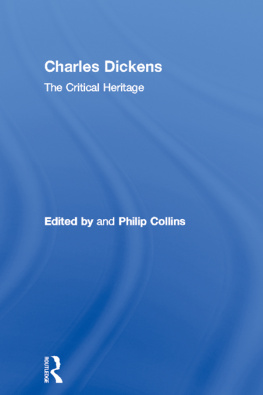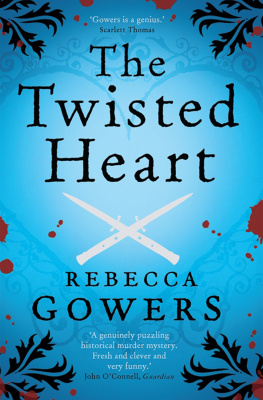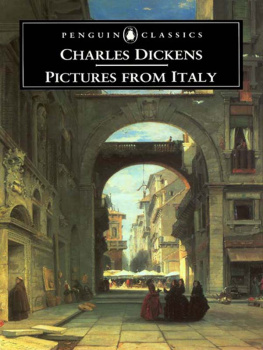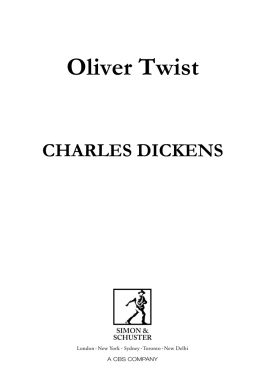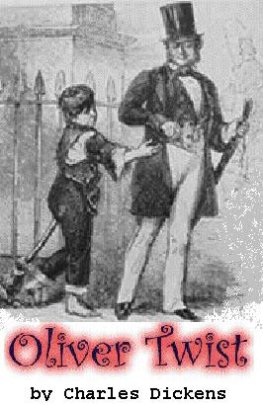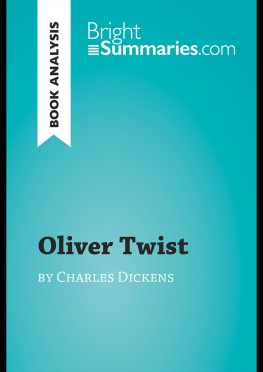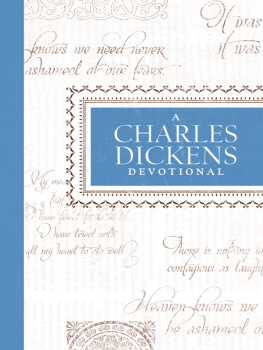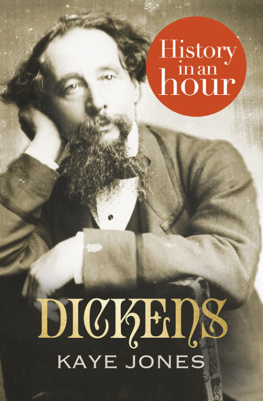Dickens Charles - Dickens and the workhouse: Oliver Twist and the London poor
Here you can read online Dickens Charles - Dickens and the workhouse: Oliver Twist and the London poor full text of the book (entire story) in english for free. Download pdf and epub, get meaning, cover and reviews about this ebook. City: Londyn (Wielka Brytania);Oxford, year: 2013;2012, publisher: Oxford University Press, genre: Non-fiction. Description of the work, (preface) as well as reviews are available. Best literature library LitArk.com created for fans of good reading and offers a wide selection of genres:
Romance novel
Science fiction
Adventure
Detective
Science
History
Home and family
Prose
Art
Politics
Computer
Non-fiction
Religion
Business
Children
Humor
Choose a favorite category and find really read worthwhile books. Enjoy immersion in the world of imagination, feel the emotions of the characters or learn something new for yourself, make an fascinating discovery.

- Book:Dickens and the workhouse: Oliver Twist and the London poor
- Author:
- Publisher:Oxford University Press
- Genre:
- Year:2013;2012
- City:Londyn (Wielka Brytania);Oxford
- Rating:3 / 5
- Favourites:Add to favourites
- Your mark:
- 60
- 1
- 2
- 3
- 4
- 5
Dickens and the workhouse: Oliver Twist and the London poor: summary, description and annotation
We offer to read an annotation, description, summary or preface (depends on what the author of the book "Dickens and the workhouse: Oliver Twist and the London poor" wrote himself). If you haven't found the necessary information about the book — write in the comments, we will try to find it.
Dickens and the workhouse: Oliver Twist and the London poor — read online for free the complete book (whole text) full work
Below is the text of the book, divided by pages. System saving the place of the last page read, allows you to conveniently read the book "Dickens and the workhouse: Oliver Twist and the London poor" online for free, without having to search again every time where you left off. Put a bookmark, and you can go to the page where you finished reading at any time.
Font size:
Interval:
Bookmark:
My primary thanks are to my darling parents, Hilda and Billy Richardson, who kept wonderful books on lower shelves, and encouraged early reading.
I cannot find words enough to thank my Brian, sweetheart of thirty years, and our lovely boy Josh who has helped with hardware, software and transcribing.
I should also like to thank my headmistress, Mrs M. H. Saunders at Lancaster Road LCC Infants School, who generously gave me the Oxford University Press edition of Oliver Twist (with a preface by Humphry House) when I left infants school at the age of 6. It is an enormous pleasure, now that I am grown, to be writing about Dickens, and to be published by Oxford University Press. I know she would be pleased.
I should also like to thank all those involved in the Cleveland Street Workhouse Campaign, especially Nick Black, Aimery de Malet, Peter, Peter Higginbotham, Kitty, Lucinda Hawksley, all our local supporters, and participants of Howard House and Cleveland St (north) Neighbourhood Watch, and other friends. Thanks above all to Heidi, that very special person who tracked me down, and recruited me to the campaign. What a fine team we have all been!
A very special thank you goes to the Dickens Rare Books specialist Dan Calinescu of Boz and Friends Rare Books of Toronto, who in true Dickensian fashion has been our staunch supporter, a kind friend, and the most helpful correspondent in the world.
Everybody at Oxford University Press with whom I have had the honour to work deserves my thanks: Luciana OFlaherty, Matthew Cotton, Latha Menon, Emma Barber, Phil Henderson, Kate Farquhar-Thomson and Kirsty Doole, Fo Orbell, Mary Worthington, Gail Eaton, Wilbur Wright, and three unnamed Readers whose comments have been enormously encouraging and helpful. Thanks also to the unknown designers, typesetters, printers, bookbinders, and others who have brought this book to press.
I owe an enormous debt of gratitude to Dickens scholars, most especially to Paul Schlicke, who has encouraged my researches so kindly, and has addressed my ignorance with great forbearance. I greatly regret that I did not make the discovery about the Workhouse when Kathleen Tillotson was alive: she would have been glad to see me such a keen Dickensian, and I know shed have put me right on a host of matters. Thanks also to friends and colleagues on the DickensForum, and to Michael Allen, Malcolm Andrews, Norman Page, John Drew, Audrey Jaffe, David Paroissien, Michael Slater, David Perdue, Joan Dicks, Judith Flanders, Lucinda Hawksley, Bill Long, Patrick Macarthy, Herb Moskovitz and the BuzFuz e-newsletter, Mitsu Matsuoka, Robert Newsom, Bob Patten, Andrew Sanders, and staff at the Dickens Museum at 48 Doughty Street. Also to historians of the workhouse system and the lives of the London Poor, above all Norman Longmate, Anthony Brundage, Simon Fowler, David Green, Peter Higginbotham, Tim Hitchcock, Elaine Murphy, Simon Fowler, and Tony Wohl.
Most of my work for this book has been done at the British Library, in the Rare Books Room, and the Maps Room, Manuscripts, and the old Official Publications Library. Like Dickens, I was very young when I was granted the privilege of a Readers Ticket. I should like to thank every individual member of the staff there, including all those who have recently been made redundant, for their unfailing courtesy, kindness, and helpfulness. Thanks, too, to all the staff at the old British Museum Round Reading Room, the old North Library, the unseen delivery staff, the academic staff at the Library, whose scholarship is priceless, the staff in Book Preservation, and the Security Staff who care for the building. And while thinking of this great institution, I salute the memory of Robin Alston, and his lifes work.
Staff in charge of that extraordinary and rich resource, the British Museum Prints and Drawings Collection, deserve real thanks for putting the collection online and making it freely available.
Many archivists have been extraordinarily helpful, and I would like to salute their fine work: particularly those at the Bishopsgate Institute, the London Metropolitan Archives, at Westminster City Archives, and the Camden Local History Library, Barnet Local Studies, the University College Hospital Archives, the Wellcome Collection, and the Harry Elkins Widener Collection, Houghton Library, Harvard University.
Staff at English Heritage put up with enthusiastic nuisances like me asking about things not fully understood, with courtesy and forbearance during the campaign to save the Workhouse. I have nothing but thanks and respect for their work and for their scholarship. Thanks, too, to staff at the Department of Culture Media and Sport, and especially the Ministers, Jeremy Hunt and John Penrose, who countermanded the daft decision of the previous government concerning the Workhouse, and listed it.
Staff at the Museum of London made me welcome, and kindly shared their resources: many thanks to Julia Hoffbrand, Beverley Cook, and Alex Werner. Andrew Potter, at the Royal Academy Library, and Philip Athill of Abbott and Holder, kindly helped me concerning Mr Gaugain.
I should also like to thank Clare Brant and Hope Wolf and friends at Kings College London Strandlines Project, Ann Saunders [Cox-Johnson] and the London Topographical Society, The Georgian Group, the Soho Society, the Marylebone Society (especially Gaby Higgs and Victoria Lochead), the Camden History Society, the Friends of Highgate Cemetery, the Friends of St Georges Gardens, and the City of Westminster Guides.
I also thank friends and colleagues Susan Armstrong, Adrian Autton, Alison Backhouse and her Worm Eaten Waistcoat, Mr Baveystock, Betty Bostetter, Helena Cronin, Francis Eames, the Eddy family, Jan Farrow, Fiona Godlee, Lindsay Granshaw, Tim Hitchcock, Annie Janowicz , Kiran Jatania, Rory Lalwan, Annie Lindsay, Elaine Murphy, Gerhard Lang, Josh Loeb, Jayne Joso, Bridget MacDonald, Helen MacDonald, Lynn McDonald, Natasha McEnroe, Professor Gordon McMullan, the current inhabitants of Norfolk Street, Peter Razzell, John Richardson and Helen English, Glenys Roberts, Maureen Rose of Taylors Buttons, Piloti, the Publican and staff at the King & Queen opposite the Workhouse, Doc Rowe, Katie Sambrook, Ian Smith, Guy Speranza, Gavin Stamp, Robert Thorne, Gillian Tindall for inspiration, various booksellers, most especially Jarndyce of Museum Street, Jane Wildgoose, Alison Wood, and Malcolm Young.
I have tried to do justice to Dickenss own writings by way of illustration, and the work of other scholars, but draw most heavily upon my own original researches in archival resources in London repositories. In the time there was to research and write this book, in order to allow the Press sufficient time to have the book ready for Dickenss 200th birthday, I was unable to dig as deeply as Id have wished into the vast resource of Dickens scholarship. If in my haste I have missed giving proper credit to anyone, I ask forgiveness, and should like to be informed of omissions/errors so that due corrections may be made.
I thank the Dickens Quarterly for permission to reproduce passages from my article Charles Dickens and the Cleveland Street Work-house, published in the journal in June 2011, 28/2: 99108.
Thanks too, to The British Medical Journal for permission to quote from the article I wrote with Brian Hurwitz, Joseph Rogers and the Reform of Workhouse Medicine, published in the journal in 1989, 299: 150710.
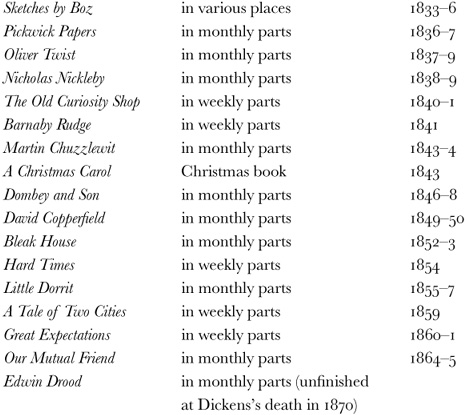

Font size:
Interval:
Bookmark:
Similar books «Dickens and the workhouse: Oliver Twist and the London poor»
Look at similar books to Dickens and the workhouse: Oliver Twist and the London poor. We have selected literature similar in name and meaning in the hope of providing readers with more options to find new, interesting, not yet read works.
Discussion, reviews of the book Dickens and the workhouse: Oliver Twist and the London poor and just readers' own opinions. Leave your comments, write what you think about the work, its meaning or the main characters. Specify what exactly you liked and what you didn't like, and why you think so.

